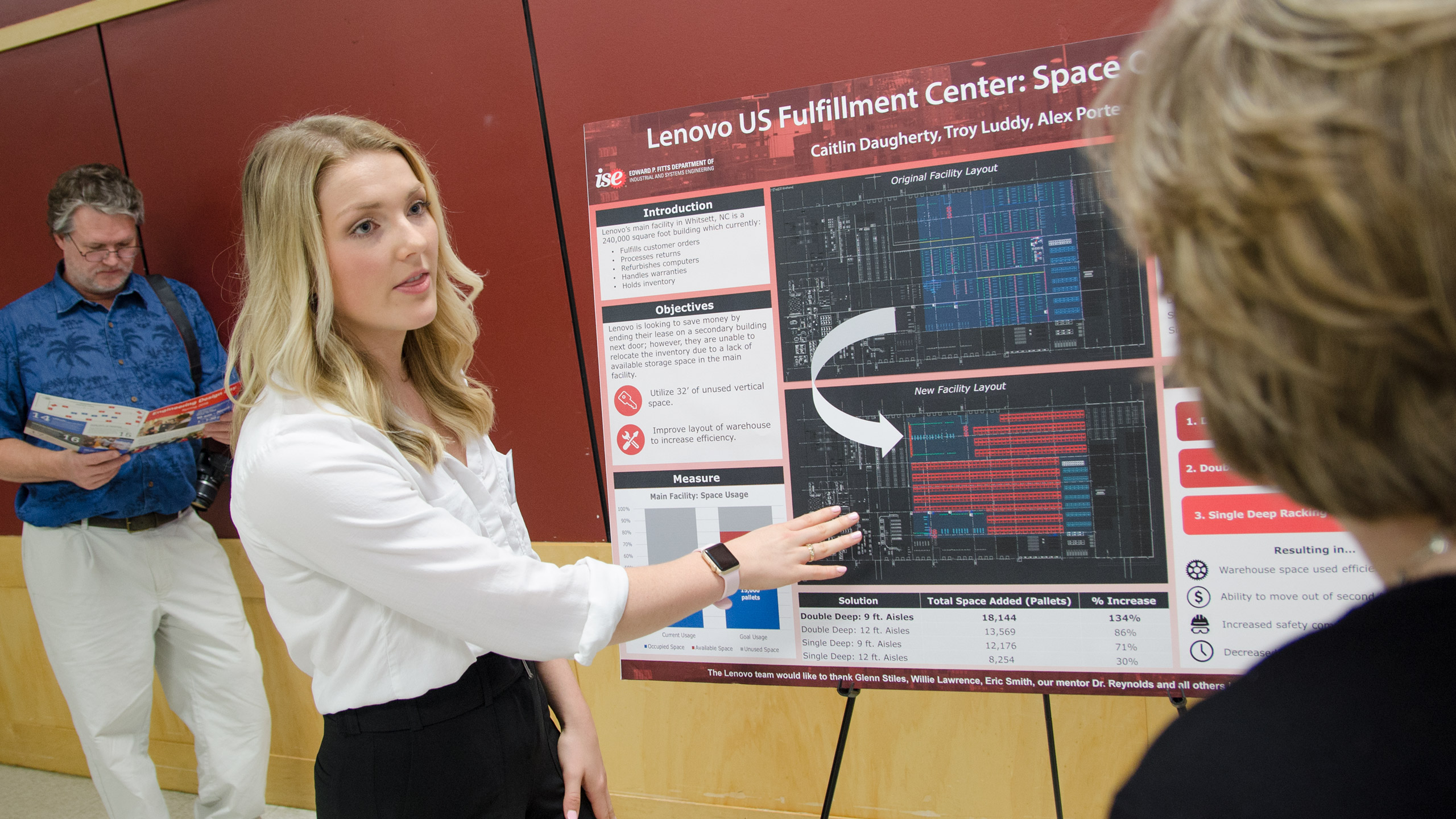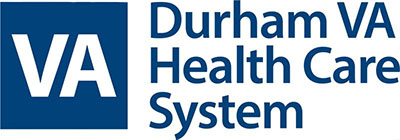Past Healthcare Systems Engineering Projects

Past Healthcare Systems Engineering Projects
Each semester we have the pleasure of working with local companies on projects as part of our Healthcare Systems Engineering Program. These projects allow companies to use student resources to inject new concepts and fresh ideas into their real-world projects. This sponsorship is rewarding for both the project sponsor and the student team. We would like to thank all our past sponsors for participating in the program.
2024 | Photo Gallery

Manhattan Associates
Student Team: Steven Lamm, Rishi Narayan, Nolan Whitley
Manhattan Associates looked to develop a profit analyzer that will allow for efficient data analysis through visualization. Through extensive data modeling, the team was able to develop multiple assistive data visualization models. These new tools will assist in the reduction of time taken to analyze large sets of information.

Premier
Student Team: Natalie Root
Premier’s current procedures for hiring and internal employee movement are subjective and lack objective data. The student team designed productivity measurements to create objectivity in the hiring process. She also identified key skills to increase internal movement.

UNC Health – Biopsy
Student Team: Jane Bendel, Claire Bercaw, Riley Racz
The Urologic Oncology Department at UNC Health Systems conducts advanced biopsies to screen for prostate cancer. However, long wait times and inefficiencies in the process hinder timely access to care. The student team optimized the schedule to increase the unit’s yearly appointment capacity.

UNC Health – Rex
Student Team: Elizabeth Poinsette, David Teague, Hannah Uglehus
UNC Rex desired improvement to supply chain and inventory levels within their facilities. The ISE team developed multiple recommendations to improve efficiency, including cycle count training, inventory tracking for call requests, and organization and standardization within the warehouse. All of these solutions directly impacted the total time lost in relation to inventory, as well as improved their inventory accuracy and reduced stockouts/excess inventory.

UNC Health – Urology
Student Team: Niomi Garcia, Devpradnya Kadam, Daniela Santibanez
The Emergency Department’s (ED) follow-up rate for kidney stones is below UNC Urology’s standard. Because patients who miss their follow-up appointments increase their risk for recurrences and return visits to the ED, UNC wanted to improve the return visit rate. The student team analyzed patient data to identify demographic factors correlated with low follow-up rates to serve as a benchmark for comparison with future post-intervention data.
2023 | Photo Gallery

Duke Health
Student Team: Emma Johnson, Matthew McAnulty, Kari Sutton
At Duke Health, the management team spent excessive time running and analyzing reports to make scheduling decisions. The original system was no longer being used, which led to the current situation. the student team created a real-time dashboard to inform leaders and help them make more informed decisions.

Eventus WholeHealth
Student Team: Hannah Behailu, Addison Davis, Tabitha Gardner, Jeremiah MacDonald
Eventus wanted to optimize the workflow of their medical assistants to better serve their patients by finding areas of opportunity or waste. This required the student team to first characterize the MS workflow and then identify areas of improvement within the logged CCM minutes of the MAs. They developed a form that defined the most common CCM activities to standardize tracking. It also allowed for easier tracking of CMM and non-CMM tasks and captured small duration tasks.

UNC Health – Rex
Student Team: Chris Allen, Rachel Boswell, Zack Horton, Catherine Reckard
UNC Rex’s main hospital was experiencing surgical scheduling and performance issues due to delays in the Sterilization Processing Department. Management has identified a need for an increase in quality and efficiency in their processes to decrease the backlog of trays and ensure safety in instrument sterilization. The student team created an optimal model to prevent the backlog of surgical trays and increase the accuracy of staffing.

UNC Health – Rex
Student Team: Kylee Alons, Emily Fang, Nupur Jain, Mohammed Mira
UNC Robotic Surgery was experiencing a utilization rate of less than 80 percent in their robotic surgical operating rooms (RSOR). Also, non-robotic surgeries took place in the RSOPs, and poor scheduling cost them valuable time in the RSORs. The student team created visualization and optimization tools to standardize the scheduling procedures which increased the utilization rate to over 80 percent.
2022 | Photo Gallery

Duke Health
Student Team: Jocelyn Chase, Hannah Teeters, Jessica Lee, Annisa Marlin Rus, Tafui Leggard
Duke Health wanted to improve its Oncology Clinical Trial Activation Process. So the student team created a standardized operating procedure for this process that was transparent and used for educational purposes.

UNC Health – Rex
Student Team: Amrita Malur, Lydia Underwood, Bharat Yadav, Hazal Yigit
Rex Healthcare has had an increased demand for Endoscopy services and would like to optimize its facilities. The student team analyzed the workflow of the space. They determined that by adding one more preoperative bay that is clear of physical constraints, they could improve the area’s workflow.
2021 | Photo Gallery

Duke Health
Student Team: Wendy Coleman Blue, Salam Ibrahim, Drew Keth
Duke Health wanted to analyze select groups in its Heart Clinical Services Unit’s bi-weekly payroll approval process for inefficiencies. Fixing errors added non-value activities, which impacted the nurses’ level of satisfaction. The student team streamlined the system to reduce the amount of non-value-added time while increasing the nurses’ satisfaction.

Durham VA Dermatology
Student Team: Kylee Alons, Maddie Morello, Jessica Williams
The Durham VA Dermatology Unit has been collecting data on biopsies performed since 2017 but does not have a method for analyzing this data or measuring their current performance. The HSECP student team analyzed the current accuracy of the Dermatology Unit’s diagnoses. They proposed methods to improve accuracy and eliminate unnecessary biopsies by identifying key accuracy influences.

Durham VA Veterans Affairs Medical Center
Student Team: Matt Doudnikoff, Carlan Ivey, Alexander McGirt
The Durham VA Medical Center’s vaccination process was slow and inefficient and needed improving. The student team observed the system, analyzed the data collected and built a model of the current state. They used the model to reduce the uncertainty by finding capacities and process dependencies.

UNC Rex Cancer Center
Student Team: Kaitlyn Roberts, Matt Traenkle, and John Watson
UNC Rex is building a new cancer center in the hospital that will open in January 2022. The administrative staff wanted to know if the center’s five registration bays would be sufficient to serve their current patient volume and a future increase in patient volume. Through observations, distribution fitting and simulation, the student team showed that using the team’s schedule, the five registration bays kept waiting times below 10 minutes and the waiting room’s maximum capacity under 20 patients.
